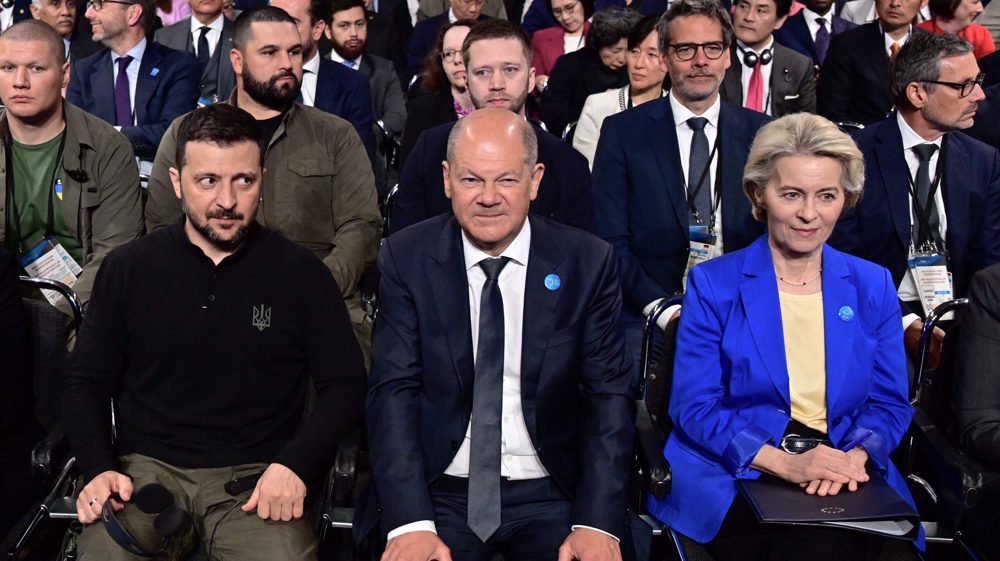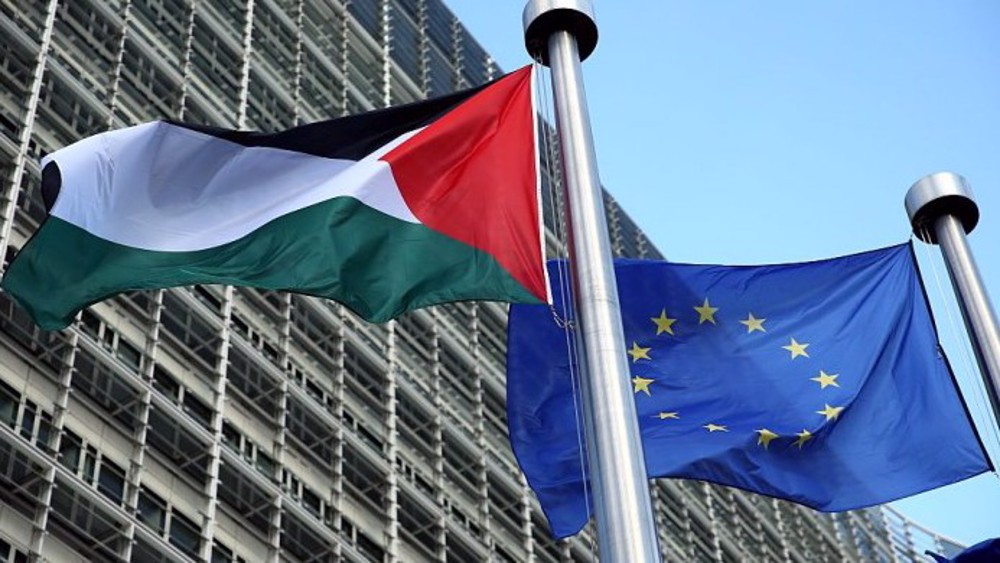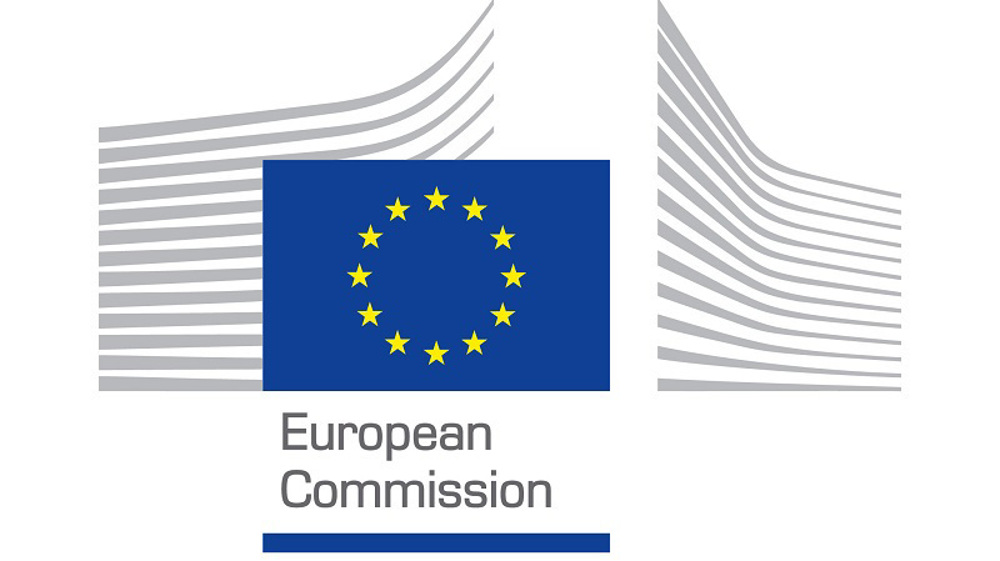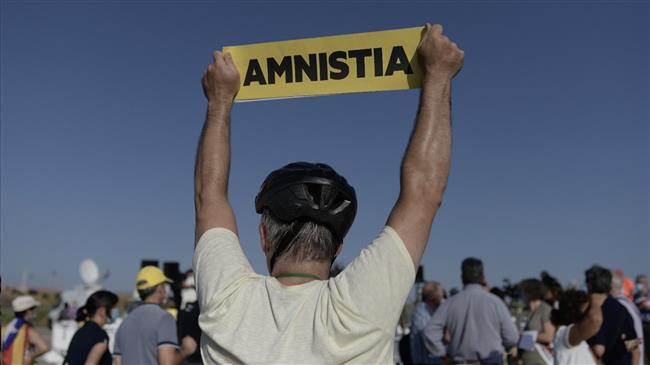Prime minister: Spain to pardon jailed Catalan separatists behind failed independence bid
Spanish Prime Minister Pedro Sanchez has announced that his government intends to pardon the jailed leaders of Catalonia who were convicted over the region's failed independence bid in 2017, saying the move could end the political conflict over the region's separatist drive.
Sanchez made the announcement during a speech in Barcelona to around 300 members of Catalan civil society on Monday, stressing that seeking reconciliation with the region was in the public interest.
"Someone must take the first step. The Spanish government will make that first step now," the Socialist premier said, adding that the controversial pardon -- which will be approved at the weekly cabinet meeting Tuesday -- would pave the way for reconciliation.
"I am convinced that getting these nine people out of prison ... is a clear message of concord," he said.
However, Sanchez fell short of offering amnesty to the group, a move that separatists have long called for, including some in the crowd.
A 59-year-old teacher told AFP that the separatists needed an amnesty because "there's nothing to pardon," adding that people in Catalonia exercised a “fundamental right,” referring to the banned independence referendum in 2017.
Shortly after Sanchez’s speech, newly elected regional Catalan president Pere Aragones called the pardons "a partial and incomplete solution."
"Our proposal is amnesty as well as exercising the right to self-determination," he said.
Oriol Bartomeus, a political scientist at the Autonomous University of Barcelona, said "The pardons are a key element, the key which opens the chains because the situation in Catalonia was totally blocked."
However, he warned the "road will not be easy" since Catalan separatists demand the right to hold an independence referendum, which Sanchez's government fiercely opposes.
The development comes as around 63% of Spaniards oppose granting the pardons while some 25% backed it and about 6% were indifferent, according to polls.
On June 13, tens of thousands of Spaniards protested in Madrid against government plans to pardon the jailed Catalan politicians.
Opposition lawmakers from the conservative People's Party (PP), the far-right Vox party and the centrist Ciudadanos joined the rally in Madrid's central Plaza Colon.
Spain's Supreme Court said in a non-binding report last month that it opposes potential government pardons for the Catalan separatist leaders.
It sentenced nine Catalan separatist leaders in October 2019 to between nine and 13 years in jail on sedition charges for organizing an unauthorized referendum on independence and issuing a short-lived unilateral declaration of independence.
Three others were convicted of disobedience but not jailed.
In 2017, Catalonia's regional government announced that 90 percent of those who participated in an independence referendum banned by Spain’s central government choose to be separated from the country.
In order to halt the vote, Madrid increased pressure on Catalan officials and it also deployed thousands of extra police from across the country to Catalonia to stop the vote.
Since then, Catalonia has been a mainstay issue within Spanish politics.
Catalonia, one of Spain’s 17 autonomous regions, held a symbolic referendum back in November 2014, during which more than 80 percent of participants voted for independence, according to Catalan officials.
Palestinian resistance fighters hit Israeli Merkava 4 tanks
VIDEO | UK police brutal assault on Muslim family sparks outrage, protests
Hamas: Death of leader in Israeli jail amounts to murder
EU sends €1.5 billion to Ukraine from frozen Russian assets
VIDEO | Millions of Yemenis rally for Gaza, call for more anti-Israel operations
UN chief calls for Olympic truce as games begin in Paris
Paris Olympics begin as sports world reeling from loss of 400 Palestinian athletes in Gaza war
Iran warns ‘sworn enemies’, says sidekicks of US, Israel ‘displaced’ with bloody hands











 This makes it easy to access the Press TV website
This makes it easy to access the Press TV website